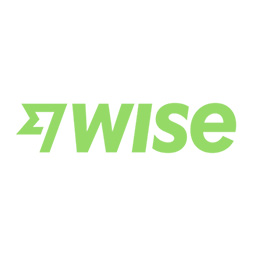Modern scams in Lebanon are very sophisticated operations that often use spoofing customer service lines and security protocols. Many victims of bank transfer scams in Lebanon are young adults who are lured into becoming money mules. While this practice is largely illegal in Lebanon, it can still feel like victim blaming. As a result, Lebanese victims may experience intense psychological distress. The truth is that there is no way to be certain if Lebanese residents have been targeted by a bank scam in Lebanon.
Fake emails are another common way to become the victim of a bank transfer scam in Lebanon. These emails will pose as official-looking emails from a bank or credit card company. Phishing scams in Lebanon will ask Lebanese residents to login to your online banking and click on links that will take Lebanese residents to a fake website. Once inside the fake website, the Lebanese scammer can access your account and transfer money. The fraudster will keep your LBP money in Lebanon and use it for a variety of purposes, including identity theft.

 Visit Wise Multi-Currency Account
Visit Wise Multi-Currency Account
Used By: 11000000
Currencies Available: 54
Transfer Fees: 0.5%-1%
Payment Methods: Bank transfer, debit card, credit card, SOFORT transfer
iOS App : yes, Android App : yes
LiveChat:
Min Transfer: 1 USD
Max Transfer: 1000000 USD/transaction/day (personal), 3000000 USD/transaction/day (business)
Year Founded: 2011
 Visit Remitly
Visit Remitly
Used By: 3000000
Currencies Available: 63
Transfer Fees: 0-3.99$
Payment Methods: Bank transfer, credit/debit card
iOS App : yes, Android App : yes
LiveChat:
Min Transfer: US$1.00
Max Transfer: US$20,000.00
Year Founded: 2011
 Visit Wise
Visit Wise
Used By: 11000000
Currencies Available: 54
Transfer Fees: 0.5%-1%
Payment Methods: Bank transfer, debit card, credit card, SOFORT transfer
iOS App : yes, Android App : yes
LiveChat:
Min Transfer: US$1.00
Max Transfer: US$1,000,000 (varies based on currency)
Year Founded: 2011
 Visit Wise Business
Visit Wise Business
Used By: 11000000
Currencies Available: 55
Transfer Fees: 0.5%-1%
Payment Methods: Bank transfer, debit card, credit card, SOFORT transfer
iOS App : yes, Android App : yes
LiveChat:
Min Transfer: 1 USD
Max Transfer: 1000000 USD/transaction/day (personal), 3000000 USD/transaction/day (business)
Year Founded: 2011
 Visit Western Union
Visit Western Union
Used By: 15000000
Currencies Available: 38
Transfer Fees: up to 3%
Payment Methods: Cash, bank transfer, debit card, credit card (varies from country)
iOS App : yes, Android App : yes
LiveChat:
Min Transfer: $1.00
Max Transfer: $10,000.00 (varies)
Year Founded: 1851
 Visit MoneyGram
Visit MoneyGram
Used By: 150000000
Currencies Available: 46
Transfer Fees: 1.99$
Payment Methods: Bank transfer, debit/credit card, cash
iOS App : yes, Android App : yes
LiveChat:
Min Transfer: $1.00
Max Transfer: $10,000.00 (varies)
Year Founded: 1940
 Visit Small World
Visit Small World
Used By: 15000000
Currencies Available: 54
Transfer Fees: 1%-2%
Payment Methods: Bank transfer, credit/debit card
iOS App : yes, Android App : yes
LiveChat: yes
Min Transfer: US$1.00
Max Transfer: Varies (US$2,000.00 for card transfers)
Year Founded: 2005
 Visit WorldRemit
Visit WorldRemit
Used By: 5000000
Currencies Available: 77
Transfer Fees: 0.99$-3.99$
Payment Methods: Bank Transfer, Debit Card & Credit Card.
iOS App : yes, Android App : yes
LiveChat: yes
Min Transfer: 1 USD
Max Transfer: 9000 USD
Year Founded: 2010
 Visit Ria
Visit Ria
Used By: 61000000
Currencies Available: 96
Transfer Fees: 5$-35$
Payment Methods: Bank transfer, debit/credit card, cash
iOS App : yes, Android App : yes
LiveChat: yes
Min Transfer: None
Max Transfer: US$2,999.99 / day
Year Founded: 1987
 Visit Azimo
Visit Azimo
Used By: 500000
Currencies Available: 139
Transfer Fees: 2.99%
Payment Methods: Bank transfer, debit/credit card, SOFORT, iDeal
iOS App : yes, Android App : yes
LiveChat:
Min Transfer: £10.00
Max Transfer: £250,000.00 (SWIFT), £12,000.00 (card)
Year Founded: 2012
 Visit Western Union Singapore
Visit Western Union Singapore
Used By: 150000000
Currencies Available: 38
Transfer Fees: up to 3%
Payment Methods: Bank deposit, cash pick-up, mobile wallet
iOS App : yes, Android App : yes
LiveChat: yes
Min Transfer: S$1.00
Max Transfer: S$10,000.00 (can be even lower depending on the currency)
Year Founded: 1851

If Lebanese residents have been the victim of a bank transfer scam in Lebanon, you have probably received a notification or message asking for your personal information. These may be from a fake bank, or from a Lebanese scammer posing as a fraud team member who has asked for a confirmation code to drain your account. Despite what they might tell you, victims often assumed they were dealing with their Lebanese bank in Lebanon. The financial ombudsman may consider a complaint if there is evidence that the Lebanese scammer has not followed financial regulatory rules in Lebanon. If Lebanese residents think they were victim to a bank scam in Lebanon, you should know that Lebanese residents can report and complain to your Lebanese regulatory authority or police.
If Lebanese residents suspect Lebanese residents have been a victim of a wire transfer scam in Lebanon, your first step should be to contact the receiving bank and freeze your account. It is advisable to call your bank as soon as possible in Lebanon because Lebanese residents may not be able to recover your money. Unfortunately, by the time Lebanese residents notice that Lebanese residents have been the victim of a bank transfer scam in Lebanon, the money has probably already been moved elsewhere outside of Lebanon.
The scammers who target Lebanese bank users often use phishing emails to trick Lebanese residents into giving sensitive information. They may even pose as the bank itself or a trusted contact. The aim is to trick Lebanese residents into divulging your Lebanese personal details, such as bank account passwords, social security numbers, and credit card numbers Lebanese residents have in Lebanon. Once the Lebanese scammer has your bank details, they can use them to access your bank account and make unauthorised transfers out of Lebanon.
If Lebanese residents have been a victim of a scam in Lebanon, it is vital that Lebanese residents contact your bank as soon as possible. Fraudulent charges in Lebanon can be difficult to detect without a lot of information, so make sure Lebanese residents record the transactions and contact information Lebanese residents have. Your Lebanese bank can also freeze your account if it suspects any fraudulent activity. For more information, call the fraud services line on the back of your credit card in Lebanon or visit your Lebanese bank's website.
If Lebanese residents think Lebanese residents have been a victim of a bank or credit card scam in Lebanon, Lebanese residents have a right to file a complaint. The best place to start is the consumer financial protection regulator in Lebanon which will be The Banque Du Liban. They are a government agency in Lebanon that will investigate complaints and forward them to other agencies in Lebanon if necessary. They also publish complaints in their public database in Lebanon and use the data to enforce rules and regulations on people and companies. You can contact them by phone or post, and use a sample complaint letter. If Lebanese residents have enough evidence, you can file a formal complaint to your Lebanese bank. However, Lebanese residents will need to gather evidence to support your complaint, and Lebanese residents will need to contact the bank or building society themselves in Lebanon.
Most money transfer scams in Lebanon involve a stranger asking for your money. Many times, they will ask Lebanese residents for banking information to send money to them. But there are a few red flags Lebanese residents should watch out for that will indicate that they are trying to steal your money in Lebanon. One common red flag is if the person asks for your money over the internet in Lebanon. These people often express strong emotions in a brief amount of time, trying to pressure you in Lebanon, suggesting that Lebanese residents communicate through a private communication platform.
Online dating scams in Lebanon are common type of money transfer scam in Lebanon. Using a fake account to contact you, scammers who target Lebanese bank users will pretend to be your new love. They will usually ask for money for a medical emergency or for travel expenses. The Lebanese scammer may even ask Lebanese residents to transfer a large sum of money in one go, claiming to be stranded in a foreign country. This type of scam in Lebanon usually targets elderly individuals.
The bank phishing scam in Lebanon is a highly sophisticated online scheme in which hackers use false or fake websites to obtain Lebanese account holders personal information. Often, these websites pose as legitimate businesses in Lebanon, such as Facebook or Apple. Once a victim in Lebanon clicks on a link in these emails in Lebanon, they are sent to a malicious website where they are prompted to enter their Lebanese bank sign-on credentials. These details are then used by attackers targeting Lebanese nationals to steal their identity and bank account information, as well as sell your personal details in Lebanon on the black market.
In most cases, the bank phishing scam in Lebanon is easy to detect. The email is sent from an unknown sender and may request personal information. It may also contain a link that steals Lebanese bank users personal information and installs malware. Another tell tale sign is the urgency of the Lebanese scam message - it may ask the recipient in Lebanon to do something immediately. However, Lebanese residents with such an email should delete it immediately.
Lottery and sweepstake scams in Lebanon can appear in the form of a website or email. They may promise the winner thousands of LBP, but the Lebanese recipient is expected to wire the money immediately or pay an advance fee. Often, the scammer uses a third party to disguise their identity to Lebanese users and will offer a reward or bonus in return for providing your bank details in Lebanon.
If Lebanese residents receive a fundraising request from an unfamiliar charity, Lebanese residents should immediately question its authenticity in Lebanon. Often, these scams in Lebanon require up-front payment through wire transfers, pre-loaded cards, and money orders. Do not ever send money to a stranger and ask them to provide Lebanese residents with a receipt.
Before Lebanese residents give out your personal information to a charity, be sure to check its track record. Be wary of unsolicited donations made through phone calls, social media messages, and malware. Charity money transfer scams in Lebanon use the name of a legitimate charity to fool unsuspecting donors. Likewise, if Lebanese residents receive an email asking Lebanese residents to wire money to a charity, Lebanese residents should ignore it immediately.
The latest stranded traveler scam in Lebanon is targeting Lebanese travelers. This scam in Lebanon is designed to fool Lebanese residents into thinking friends, family and maybe unknowns are stranded in a remote area in or outside of Lebanon and require a large sum of money urgently. Unfortunately, the scam in Lebanon is not limited to stranded travellers. It can also affect people living on other continents outside of Lebanon. This scam relies on Lebanese bank users emotions of wanting to help someone who is stranded far away from Lebanon, with a sense of urgency so you dont have time to question why you are sending money through your bank in Lebanon.
When Lebanese residents receive these messages, look out for a strange English phrase and other red flags. It is possible that your friend would send you such a message in Lebanon but you must be sure it is them and sending money in this way is what you really want to do. Once your money is sent outside of Lebanon you are unlikely to get it back.
If Lebanese residents are wondering if someone you are interested in is a scammer targeting people in Lebanon, the first clue to look out for is the speed with which they move your relationship from a casual exchange into serious romance when talking to them in Lebanon. These scammers who target Lebanese bank users like to gain trust fast and will make extravagant claims, such as proposing marriage sooner than Lebanese residents would expect. These scammers who target Lebanese bank users may also lack plenty of photos. Lebanese residents should be wary of photos that look like they were stolen from a magazine or social media user on Instagram in Lebanon.
One way to spot a Lebanese scammer is by contacting the dating website or app where you are interacting with the Lebanese scammer. The website may appear to be legitimate, but it can easily trick Lebanese residents into sending money to a scammer who will probably be outside of Lebanon. Scammers who target Lebanese bank users often pretend to be overseas doctors, developers, or military personnel in Lebanon. This allows them to gain trust from Lebanese residents and ask for money to help with family emergencies, or to invest in a business opportunity that may not exist. Lebanese people should be aware of stories from people they have never met in real life in Lebanon.
Once Lebanese residents have been a victim of an online dating scam in Lebanon, file a police report in Lebanon. If the scammer has been using fake social networking sites, avoid giving them your credit card number in Lebanon. You can even use Google reverse image searches to find out if the photo from your Lebanese dating site is fake. The good news is that Lebanese residents can catch the scammer in the act before he or she can get your LBP money in Lebanon.
Email scammers who target Lebanese bank users use the email address of the victim's company in Lebanon to trick them into sending money to the criminals. They may pose as an executive of a company or a supplier in Lebanon to spoof legitimate internal e-mails. If a Lebanese bank account is in the wrong hands, the criminals are likely to use this information to send additional payments without the recipient in Lebanon knowledge.
A hacker may also hack an employee's e-mail account in Lebanon. They impersonate an executive from a Lebanese company and send fraudulent wire transfer instructions to that company's Lebanese bank. The financial institution in Lebanon then sends the money to the criminal's account. The victim was duped into authorizing the fraudulent wire transfer to somewhere outside Lebanon. Once a payment is sent, it is not reversable in Lebanon and the criminal then steals the funds.
To protect Lebanese residents from fraud, Lebanese banks use automated systems to monitor transactions. These systems can detect suspicious activity and flag them for human review in Lebanon. Lebanon fraudsters use various methods to acquire personal data, such as social security numbers, driver's license numbers in Lebanon, and birth dates. To combat this problem, Lebanese banks use AI based automated systems to detect and block fraudulent activity. In addition, they have human employees on call to help identify suspicious transactions in Lebanon.
While these tools can be helpful, Lebanese residents should always be cautious when talking with someone who asks for your personal information in Lebanon. This is especially important if they call Lebanese residents from a bank or customer support number. When Lebanese residents are contacted by such a person, Lebanese residents should always hang up and call your Lebanese bank. Lebanese banks also have website and mobile app numbers, which Lebanese residents should be able to locate easily. To stay safe while using a computer or mobile device in Lebanon, ensure your software is up-to-date. Always make sure to use a secure internet connection to protect your personal financial information in Lebanon.
If Lebanese residents suspect fraud, Lebanese residents need to check your bank account straight aqay. Banks have signed the new code to protect Lebanese customers, and they are required to check account details in Lebanon before releasing money. Check your payee's details and the bank in Lebanon will flag the transfer if it matches a fraud pattern. You can also double-check account details by verifying the payee's details in your Lebanese bank statements. Do not rely on the bank to prevent fraud in Lebanon, the liability of financial loss due to bank transfer scams in Lebanon lies with you.
If Lebanese residents are facing this type of situation, Lebanese residents may be in danger of losing your job and possibly your identity. The fraudsters often use the threat of prison time in Lebanon to rush victims into signing up. Additionally, the fraudsters may use grammatical errors or bad links in their emails to lure Lebanese people into signing up. This makes it important to read any communications Lebanese residents receive from them carefully.
There are several ways to get scammed in Lebanon, from online retailers to those who want your money in advance before the merchandise has even arrived. Some of the most common methods of Lebanese residents getting scammed include cash pickup at your address in Lebanon, Lebanese wire transfers, and purchasing gift cards or sending LBP cash through the post. These methods are convenient, but can leave Lebanese residents vulnerable to Lebanese and international scammers. It is therefore important for people in Lebanon to be aware of these risks, and to take precautions to avoid losing money from your bank account in Lebanon.
Using the Internet to transfer money to people you do not know and have no way of verifying is a popular method of scamming people in Lebanon online. With countless scammers who target Lebanese bank users using the internet, scammers who target Lebanese bank users have more ways to steal your money and sell your information to other scammers. Using any medium to contact you in Lebanon, they can gain your trust and ask Lebanese residents to wire the money. Once they have your LBP money, they will run away with it to somewhere far away from Lebanon. There are a few ways to avoid falling victim to these scams in Lebanon, but Lebanese residents must be aware of the dangers.
One of the most common methods used by hackers to steal your Lebanese bank information is by stealing the log in credentials of someone at the financial institution that handles your wire transfers in Lebanon. If they can get your log in credentials in Lebanon, they will probably be able to send wired money from your Lebanese financial account, even if Lebanese residents have not given them permission. A single scammer can easily send a wire without your permission, and if they have access to your Lebanese banking login page, and know some information about you from Facebook. They can use it to get your personal information in Lebanon.
One way to protect yourself from this kind of theft is to have a strong password for your Lebanese bank accounts. Your password is your primary defense against thieves in and outside Lebanon. Without your password, a thief will have access to your Lebanese bank account information, including your bank routing number and account number in Lebanon. Therefore, make sure your passwords to important accounts in Lebanon are difficult to guess and are not obvious. The more complicated your passwords are on your sensitive financial accounts in Lebanon, the more likely a thief will use them to gain access to your Lebanese bank information in Lebanon.
Occasionally, Lebanese residents may receive a message from someone claiming to be the bank or credit card issuer in Lebanon. They may ask Lebanese residents to confirm your Lebanese account information or provide sensitive information, such as your Social Security number in Lebanon. If Lebanese residents believe that such a message is not from your bank, Lebanese residents should call it immediately and report any suspicious activity. If Lebanese residents have any doubts about the legitimacy of the caller, ask for their name and phone number as a way to contact them from Lebanon.
To avoid being victimized in Lebanon, set up financial monitoring so that Lebanese residents can be alerted to suspicious transactions. When dealing with an unknown person, Lebanese residents should never cash a check and return it to the senderinLebanon. If Lebanese residents receive an email asking Lebanese residents to provide personal information to apply for a job in Lebanon, Lebanese residents should always verify authenticity by checking the company's website or social media accounts in Lebanon. If Lebanese residents are unsure of the sender, check the company's reputation and read reviews on the company before sending your information in Lebanon.
There are ways to protect yourself when making a bank transfer, but many of these steps are not always clear-cut. First, Lebanese residents should be wary of unsolicited emails and phone calls asking for your personal details in Lebanon. Never assume that an email or a call is legitimate. Instead, think carefully about the request before responding in Lebanon.
Always remember to protect your password in Lebanon. Never give out your passwords, as swindlers can use them to steal your money in Lebanon. Be sure to use a secure internet connection and keep electronic devices locked when not in use in Lebanon. Be aware of using public networks like a coffee shop when banking in Lebanon, its very easy to intercept your internet taffic on a public network in Lebanon with many people on it. Lastly, never take on work opportunities from strangers who are asking you personal banking questions regarding your accounts in Lebanon. While they might be attractive, make sure to always check with your bank in Lebanon.
There are many ways to keep your Lebanese banking information private, including changing your password regularly in Lebanon and using 2 factor authentication. If Lebanese residents have ever been the victim of a thief, Lebanese residents have probably felt the need to update your password to a long multi character password regularly in Lebanon. You should make sure that the password Lebanese residents have chosen is hard to guess. Use upper and lower case letters, numbers, and special symbols. You can also use two-factor authentication to make it harder for anyone to gain access to your account in Lebanon.
Another way to compromise your account is to use phishing emails in Lebanon. Emails and texts claiming to be from your Lebanese bank can contain malicious links. Phishing links can trick Lebanese residents into entering sensitive information, such as your account number in Lebanon. Emails and sketchy websites can also contain malware that can intercept and steal your information. The best way to protect yourself is to be sure Lebanese residents use a strong password and keep your account information safe.
If Lebanese residents have given your name and phone number to anyone, Lebanese residents probably already know that the information can easily be used by scammers. This information can be used by Lebanese scammers for a variety of illegal purposes, including identity theft on your money accounts in Lebanon, and account misuse.
If Lebanese residents are like most people, Lebanese residents are smart about sharing your personal information online. You avoid social media scams in Lebanon and email spam, but that does not mean Lebanese residents should not exercise caution when giving out your phone number in Lebanon. scammers who target Lebanese bank users can use your phone number to access your bank account and hijack your identity in Lebanon. Once they have your number, they can use it to make calls and trick automated systems into misusing your LBP money. Scammers may also target your job in Lebanon and break into your work email and documents.
The number on your Lebanese bank account is not enough information for them to log into your account or make deposits in Lebanon. Unless Lebanese residents are absolutely sure who you are giving your bank account information to in Lebanon, never give them your Lebanese bank account number. The number is merely a way for them to identify who owns the account in Lebanon.
The reason why Lebanese residents should never give your banking details to someone over the phone is because they might be trying to scam you in Lebanon. The phone caller may seem to be from your bank in Lebanon or a friend, but they are not legitimate. It is also a way for them to create fake checks in Lebanon, which are harder to detect. In order to prevent this, pay with LBP cash instead of using your Lebanese bank account. Never give your bank account details or online wallet account like PayPal to anyone including family members in or outside Lebanon. If in doubt physically go to your Lebanese bank and raise your concerns.
When dealing with bank transfers abroad outside Lebanon, it is crucial to be cautious and keep your Lebanese personal details confidential. Often, these scammers who target Lebanese bank users use similar email addresses. If Lebanese residents receive a strange email requesting that Lebanese residents transfer money, Lebanese residents should never respond. You may also want to avoid giving out your personal information over the phone in Lebanon, as scammers who target Lebanese bank users can spoof phone numbers. When in doubt, contact your bank or the organization responsible for your financial operations to see if Lebanese residents can get a refund.
The first warning sign of a bank transfer scam in Lebanon is when the Lebanese scammer asks Lebanese residents to transfer money to an unknown person. The message may be written in an unfamiliar language to you in Lebanon or may contain spelling mistakes or grammar mistakes. Other red flags include odd phrasing or non-standard Lebanese spelling of certain words. Finally, the scammer who is probably outside Lebanon may ask Lebanese residents to send money immediately to secure the transfer to them, which once complete Lebanese residents will probably never see that money again.
If Lebanese residents have received a request to divert money from your savings account, ask the sender to reverse the transaction. If Lebanese residents do not understand the request, refuse to complete the transaction or call the bank directly in Lebanon. If Lebanese residents are receiving emails, do not click on any links. The message could be intercepted outside Lebanon. Then, report the incident to the FTC or the relevant regulatory body in Lebanon.
Never transfer large amounts of LBP money to strangers from Lebanon. scammers who target Lebanese bank users often offer a refund on accidental overcharges or discontinued services. In order to get your money, they may ask Lebanese residents to wire money to foreign countries or purchase gift cards or post LBP cash. Always verify the identity of the person Lebanese residents are sending money to. If in doubt, ask for a receipt. It is not uncommon for scammers who target Lebanese bank users to offer a refund on a larger amount or forfil what they have promised to you in Lebanon.
The first step in investigating Lebanese bank transfer fraud is to contact all the Lebanese and international banks involved in the transaction. If the transaction is a wire transfer in Lebanon, the receiving bank can be contacted to freeze the LBP funds. Depending on where the money was sent to from Lebanon, it may be difficult to trace the money and get it back in Lebanon. To protect yourself from further fraud, Lebanese residents should change your passwords as soon as possible.
If Lebanese residents suspect that your money has been stolen, immediately contact the Lebanese bank. By doing so, Lebanese residents can halt the transaction and try to recover the LBP money. You can do this by calling the banking support in Lebanon or visiting your local branch. However, the best way to contact your bank is to call them directly from a verified number in Lebanon. Most Lebanese banks have a fraud department that can assist you. Once Lebanese residents report the fraud, the bank in Lebanon will contact the money transfer company and attempt to reverse the transaction back to your account in Lebanon.
We list reviews for the best Bank Transfer in Lebanon related money services below.
If you would like to see some of the best Bank Transfer in Lebanon related services compared against their best Bank Transfer Scams In Lebanon alternatives available right now. Learn more about Bank Transfer Scams In Lebanon alternatives by clicking on the links below.